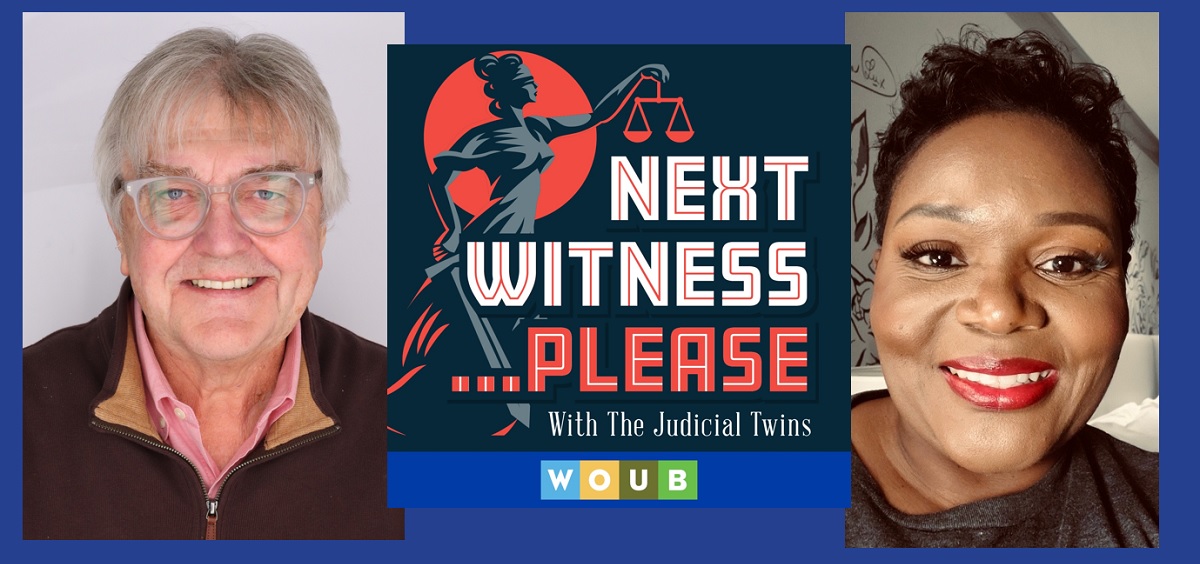Communiqué

Abortion Chaos: How State Courts are Navigating Conflicting Laws and Protecting Women’s Rights
< < Back toSending the creation and administration of abortion laws and regulations back to the states is causing a patchwork of confusion and is putting the burden on local state courts to determine their constitutionality.
The draconian impact of some of these laws is also causing danger and death to innocent women.
In this episode of “Next Witness…Please,” retired judges Thomas Hodson and Gayle William-Byers focus on three states as examples of abortion chaos at the state level: Georgia, Louisiana and Ohio.
They examine state abortion legislation and state court trial decisions since the U.S. Supreme Court overturned Roe v. Wade.
Most of the trial court decisions are currently subject to appeal through each state’s court system and may eventually work their way to the U.S. Supreme Court for the ultimate determination of constitutionality. But what appears until then?
During this presidential campaign, former president Donald Trump and his running mate J.D. Vance have said that the abortion issue is resolved because each state now has the right to pass its own laws.
This podcast finds the abortion issue is far from settled.
GEORGIA:
THE GEORGIA TRIAL COURT DECISION DISCUSSED IN THIS PODCAST HAS BEEN TEMPORARILY PUT ON HOLD UNTIL THE GEORGIA SUPREME COURT HEARS THE CASE. THIS STATE SUPREME COURT “STAY” CAME AFTER THE RECORDING OF THIS EPISODE. IT PERMITTED THE GEORGIA ABORTION BAN TO REMAIN EFFECTIVE.
Recently, Fulton County Superior Court Judge Robert C.J. McBurney, a Republican appointee, declared Georgia’s Living Infant’s Fairness and Equality Act (LIFE) unconstitutional.
The LIFE legislation banned abortions if a fetal heartbeat can be detected, usually around six weeks, absent a medical emergency.
Judge McBurney found that every life is worth protection, including the lives of the women and girls who are pregnant. He issued a 26-page opinion that many legal scholars claim destroys the Supreme Court’s reasoning espoused by Justice Samuel Alito.
Here is a copy of Judge McBurney’s opinion:
Judge McBurney’s decision followed two well-publicized deaths of women in Georgia from complications of abortions by medicine.
Amber Thurman was a 28-year-old mother is a six-year-old who died in a Georgia hospital while doctors were waiting for her condition to become a “medical emergency.” They waited too long.
The second death was Candi Miller, 41, who died in her bed next to her 3 -year- old daughter.
LOUISIANA:
Two common drugs used in medication abortions have now become controlled substances in Louisiana and it is criminal to possess them without a prescription.
The drugs are mifepristone and misoprostol.
They are listed with drugs like fentanyl, heroin, cocaine and other drugs that lead to physical or psychological dependence.
Violators could be subject to a $5,000 fine and up to five years’ incarceration.
OHIO:
In 2023, Ohio voters passed a constitutional amendment to the state constitution allowing one to “make and carry out one’s own reproductive decisions.” It passed by a 57 percent vote.
However, several pieces of legislation from a MAGA dominated state General Assembly have attempted to undercut the will of the people.
At the end of the summer, Hamilton County Common Pleas Judge Alison Hatheway issued a preliminary injunction halting the enforcement of a law banning the use of telemedicine in medication abortions.
She also blocked another law prohibiting non-doctors including midwives, advance practice nurses, and physician assistants from prescribing the abortion pill mifepristone.
In making her decision, Judge Hatheway cited Ohio’s new amendment.
“The Amendment grants sweeping protections ensuring reproductive autonomy for patients in Ohio. Plaintiffs have provided substantial evidence to prove by clear and convincing evidence that the bans at issue here violated these newly enshrined rights in a manner that is not the least restrictive and actually causes harm to patients.”
It is expected the Judge Hatheway’s decision will be appealed to the Ohio Supreme Court which, after this election, may have a 6-1 Republican majority.
The patchwork of state actions concerning abortion creates a patchwork of uncertainty.

